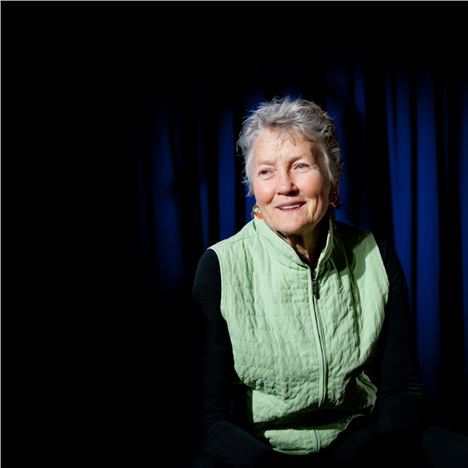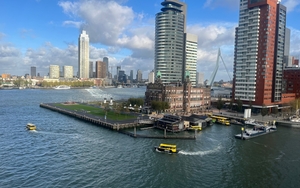IN the entire history of popular music, if you were going to have one tune written for you, what would it be?
This, you understand, is not a question we'll be asking American folk legend Peggy Seeger. She won the gong, job done, over a quarter of a century ago.
'Revolution needs experience, not just ideas'
1956 - that was the year the late, great Ewan MacColl, took time out from drumming up political rabble-rousers like Dirty Old Town after he instantly fell for the 21-year-old musician on her first trip to England.
MacColl was 20 years her senior - a lovesick Salford-Scot who, in Seeger's honour, composed The First Time Ever I Saw Your Face.
It would be another 16 years before the song would become a mega hit for Roberta Flack, and it finally earned him a Grammy in 1972.
“It's got that short, repeated first line that hooks you,” says Seeger, a woman who knows about these things; the MacColl-Seeger songwriting alliance is, after all, seen as one of the driving forces behind the UK folk revival of the 1960s.
There would also be another 60 cover versions of the song, all of which its writer, up to his death in 1989, is said to have despised.
Perhaps he would have approved of the latest: Seeger's haunting, melancholic rendition brings something completely different to The First Time... recorded this year, with an improbable-sounding Tubeway Army riff, by the DJ and producer Broadcaster.
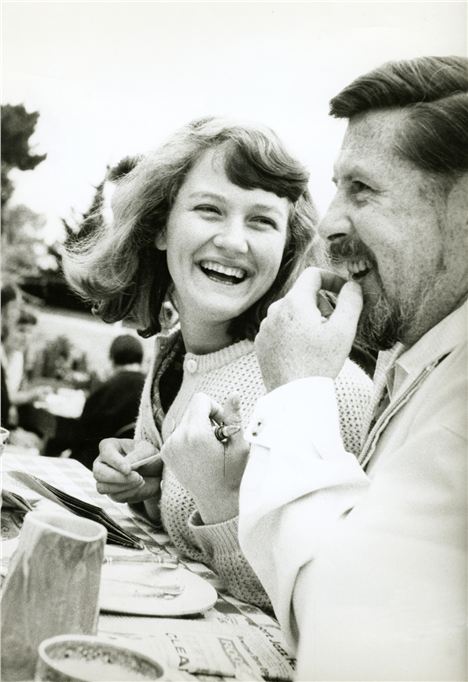 Peggy Seeger and Ewan MacColl at Newport, 1960
Peggy Seeger and Ewan MacColl at Newport, 1960
“I had always thought of it as a joyous lyric, but Broadcaster wanted to make it sad, more poignant. - an older woman reflecting on the past,” Seeger says, revealing how her son, Calum MacColl (Boyzone's MD, indeed), mixed the arrangement, insisting she sing it at the very bottom of her range.
She's performed a more traditional version for years on the live folk circuit and by now, aged 77, has got over her initial blushes. “It is a highly intimate song. I was deeply, deeply embarrassed the first time I sang it,” she recalls.
"But, yes, I am honoured."
And back in 1956, things were not straightforward. MacColl (married, banned from the Commie-fearing US) wasn't going to get a chance to woo the girl on any nearby balcony so he found another way to lay it all on the line. His voice and a guitar were relayed via the cutting-edge technology of the transatlantic phone call. It crackled the lyrics' intimacy to Seeger, crouched on a stairway, 7,000 miles away in New York.
Some versions of the story say The First Time... was written with a practical purpose – Seeger needed a song quickly for a play she was involved in and MacColl duly obliged.
Yet no one can deny its powerful, timeless intention and, a million love songs later, Seeger still retains the Go-On-Then-Follow-That award.
So where do you go from there? Funnily enough to an awards ceremony. When the rather more cutting edge cell phone (her vernacular), connected last week, Seeger was belting it up the M40 to London.
Far from crouched, she was ready to stand tall with The Prodigy, Edwyn Collins and The 13th Floor Elevators at the Association of Independent Music Awards. Her work with Broadcaster, on the July album Folksploitation, had earned her a Genre Spotlight nomination. In the end she lost out to rapper Wiley.
Onward and up.
This weekend, away from the rave scene, there will undoubtedly be much ranting when Seeger rolls into Liverpool's Sefton Park Palm House as part of the Anti Capitalist Roadshow.
On the bill are big name singer/songwriters, a collective that comprises herself, Roy Bailey, Robb Johnson, Gracie Petrie, Leon Rosselson, Janet Russell, Jim Woodland, plus one (there is only one!) socialist magician, Ian Saville.
According to organiser Leon Rosselson, the roadshow was created "to raise spirits and give hope and cheer and a smile or two to those angry at the ideologically-driven austerity programme”.
He adds: “We are part of the resistance to a capitalism that functions only on behalf of the wealthy, that aims to shrink the public sphere and privatise public services, including the NHS, and that is destructive to the planet. We are part of another way of looking at the world."
All laudable, however, are we not preaching to the converted? After all, don't these gigs tend to attract and contain an audience of a certain political persuasion?
“To a degree,” Seeger says. “But their job is to bring together people who will be empowered, given renewed vigour, to go on and reinforce the message to others who don't have that.”
The Liverpool date is the only one in the North West and the show has enjoyed enthusiastic audiences and sold-out shows in Leicester, Leeds, Hebden Bridge, London, Porstmouth, Shoreham and St Albans.
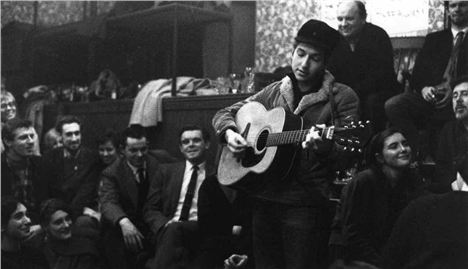 The times a-changing. Dylan in London in 1962. Ewan MacColl far right
The times a-changing. Dylan in London in 1962. Ewan MacColl far right
What of the songs themselves? Have the trappings and “charms” of capitalism and the X Factor rendered the radical, rebel-rousing folk anthem a spent force?
Seeger concedes that in the mainstream “we have become consumers of music rather than producers”, but, she believes, all is not lost.
“Songs, powerful songs, have and are still being composed. Look at the people taking part in the Occupy movement. They are doing it.”
Music has always -and should be – part of protest, she says, recalling the anti-nuclear Aldermaston Marches in the 1960s in which she and MacColl were, literally, instrumental. CND leaders wanted to march in silence, and the youth wanted to sing and play guitars.
“These people are on the ground and they are making songs for people to sing. Songs that come from first-hand, personal struggle and don't rely on slogans.”
Seeger is quick to point out that her view is a personal one and not necessarily shared by her compatriots in the roadshow, subtitled “Celebrating Subversion”.
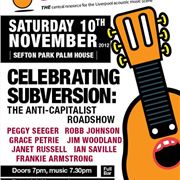
The multi-instrumentalist (Pete Seeger’s half-sister, and Ruth Crawford Seeger’s daughter), is considered to be one of North America’s finest female folksingers with 22 solo recordings to her name and contributions to more than 100 recordings with other performers.
Her best-known compositions are the influential women's movement anthem Gonna Be An Engineer and The Ballad of Springhill (the latter rapidly becoming regarded as a traditional song).
But there is no rest, and a new single from Folksploitation, the dub-skank, death-row-inspired Bad, Bad Girl, moves her flirtation with the dance beat into what could be a full-blown affair.
Bad, Bad Girl was originally transcribed from an Alan Lomax recording of Ozella Jones in Florida State Prison in 1936.
It's here you sense that the least most interesting thing about Peggy Seeger is the song we started out with. This latest stuff on her journey is sophisticated, dark, knowing, playable. And then there are those scars. The scars that are the stars.
For as she observed of radicalism: “Revolution needs experience, not just ideas.”
Could Seeger's autumnal Johnny Cash moment be about to arrive?
*Celebrating Subversion: The Anti-Capitalist Roadshow, Sefton Park Palm House, Aigburth, L17, Saturday November 10. Doors 7pm, music 7.30pm. Tix £10 (£6 unwaged) from here, also available from News From Nowhere, Bold Street, Liverpool 1.









